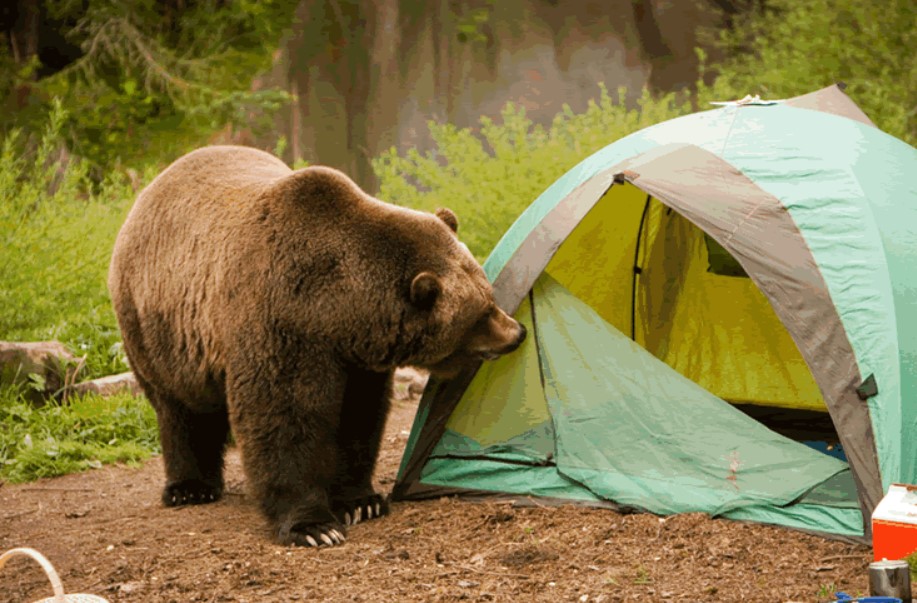
Camping is a delightful way to reconnect with nature and escape the hustle and bustle of everyday life. However, sharing the great outdoors with wildlife comes with its own set of responsibilities. Whether you’re an experienced camper or a first-timer, it’s essential to be mindful of the potential risks and take precautions to stay safe while camping in the wilderness. Here are some invaluable tips for staying safe from wildlife during your camping adventures:
1. Educate Yourself:
Before heading out, research the area you plan to camp in and familiarize yourself with the wildlife species that inhabit the region. Learn about their behavior, common habitats, and potential risks they might pose. Understanding the local wildlife will help you anticipate encounters and prepare accordingly.
2. Store Food Properly:
One of the primary reasons wildlife can become a problem during camping trips is the smell of food. Keep all food items and scented items like toiletries securely stored in airtight containers or bear-resistant canisters. Hang food bags from a high branch away from the campsite or use designated food storage lockers, if available.
3. Cook and Eat Away from Your Tent:
Set up a designated cooking area at least 100 yards away from your sleeping area. After meals, clean up thoroughly, disposing of food scraps responsibly and washing cooking utensils diligently. This practice will help prevent wildlife from being attracted to your sleeping space.
4. Never Feed Wildlife:
As tempting as it may be to feed a cute animal that wanders into your campsite, it’s crucial not to do so. Feeding wildlife alters their natural behavior and can make them reliant on human food, creating potentially dangerous situations for future campers.
5. Keep a Clean Campsite:
Maintain a tidy campsite by picking up trash and securing all gear and personal items. Leaving items scattered around can attract curious critters and may lead to encounters that could be avoided with a clean, organized site.
6. Make Noise:
While hiking or moving around the campsite, make some noise to alert wildlife of your presence. This practice helps avoid surprising animals, reducing the likelihood of defensive or aggressive behavior.
7. Respect Wildlife’s Space:
Keep a safe distance from all wildlife. Use binoculars or a telephoto lens for observing animals from afar. Never attempt to approach or chase wildlife, as it can be dangerous for both you and the animals.
8. Be Mindful of Seasonal Wildlife Activity:
Some animals may be more active during specific seasons, such as mating or hibernation periods. Be aware of these patterns and adjust your camping practices accordingly to minimize potential encounters.
9. Use Bear Boxes and Bear-Proof Canisters:
If you’re camping in an area known for bear activity, use provided bear boxes or invest in bear-proof canisters to store your food and scented items safely. Bears have an excellent sense of smell and can be relentless when seeking food.
10. Learn How to React:
Despite taking all precautions, you might still encounter wildlife during your camping trip. In such cases, knowing how to react is crucial. Familiarize yourself with the appropriate responses for different animal encounters. Latest gun with 5.56 ammo is also necessary to you secure in wild. For example, slowly back away from large predators like bears and mountain lions, while standing your ground against aggressive small mammals like raccoons.
By following these tips, you can significantly reduce the likelihood of negative wildlife encounters and ensure a safer and more enjoyable camping experience. Remember, the best way to appreciate and coexist with wildlife is to observe from a distance and leave no trace of your presence in their natural habitat.